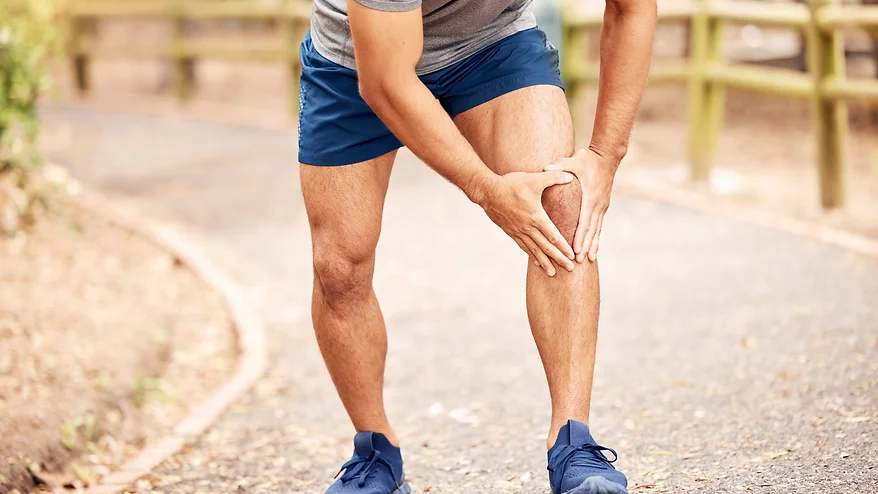
First of all, it’s important to recognise the symptoms of knee pain.
Symptoms:
These symptoms can derive from a variety of conditions and injuries, so if you are unsure on the cause of your knee pain, contact our physiotherapists or chiropractors!

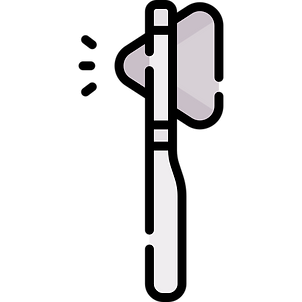
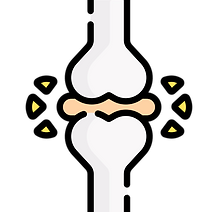
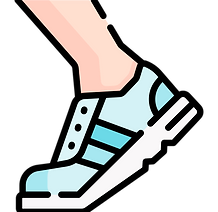
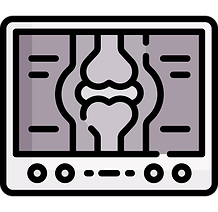
Now that we’ve looked at the symptoms and causes, let’s look at how you can treat knee pain at home. In the first 24 hours of having knee pain, it’s best to avoid putting weight on that leg. Avoid standing on that leg and try to rest it if you can, perhaps keeping it elevated on top of a chair or cushion. Gently moving your leg for 10-20 seconds every hour to stop stiffness is advised.
After 24 hours, try to move your leg a little more. A short, gentle walk can be good to keep away long-term pain. Putting a heat or ice pack on is a really good idea. If there is swelling, an ice pack (or bag of frozen peas) will work best. Make sure when using a heat or ice pack that there is some kind of cloth/tea towel separating the pack from your skin so as not to scald or freeze your skin too much. You can use an ice/heat pack for around 20 minutes every hour to help with pain, swelling and stiffness.
What types of conditions do physiotherapists treat?
Physiotherapists can treat a wide range of conditions, including sports injuries, back pain, knee pain, neck pain, arthritis, stroke, multiple sclerosis, Parkinson’s disease, and more.
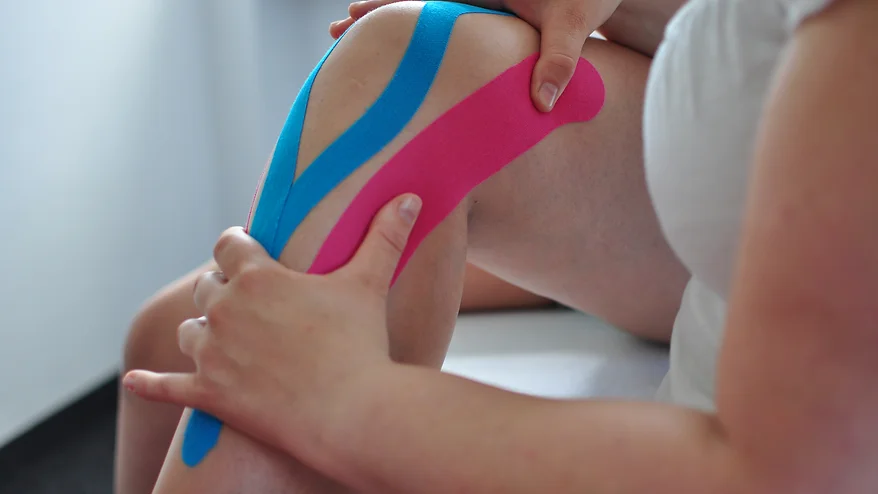
A great option if you’re struggling with knee pain is to book an appointment at Falcon Health! We are a team of specialists who are fully equipped to tackle your knee pain and have you feeling and moving better. We offer a range of treatments from acupuncture to sports massage and we can tailor your sessions to treat whatever complaint you’re dealing with.
Not only can we help get rid of your knee pain, we can also take preventative measures to make sure it doesn’t come back. Contact us today to start feeling better.
34 Church Rd, Burgess Hill
RH15 9AE
Mon – Thur | 8:20am – 7:00pm
Friday | 8:20am – 5:30pm
Saturday | 9:00am – 1:00pm